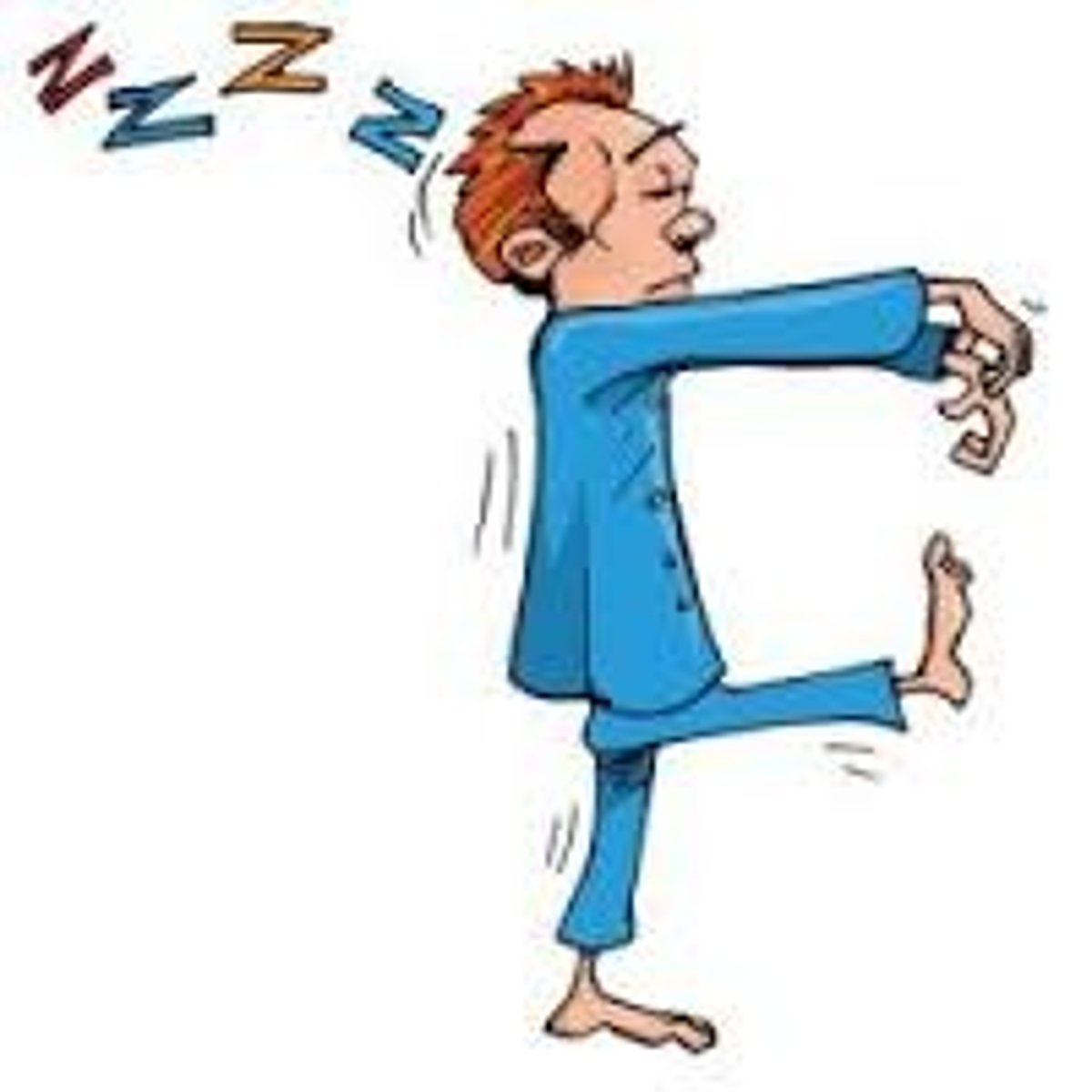AP Psychology: Topic 1.5 - Sleep
1/17
There's no tags or description
Looks like no tags are added yet.
Name | Mastery | Learn | Test | Matching | Spaced |
|---|
No study sessions yet.
18 Terms
Consciousness
awareness of unique thoughts, memories, feelings, sensations, and environments
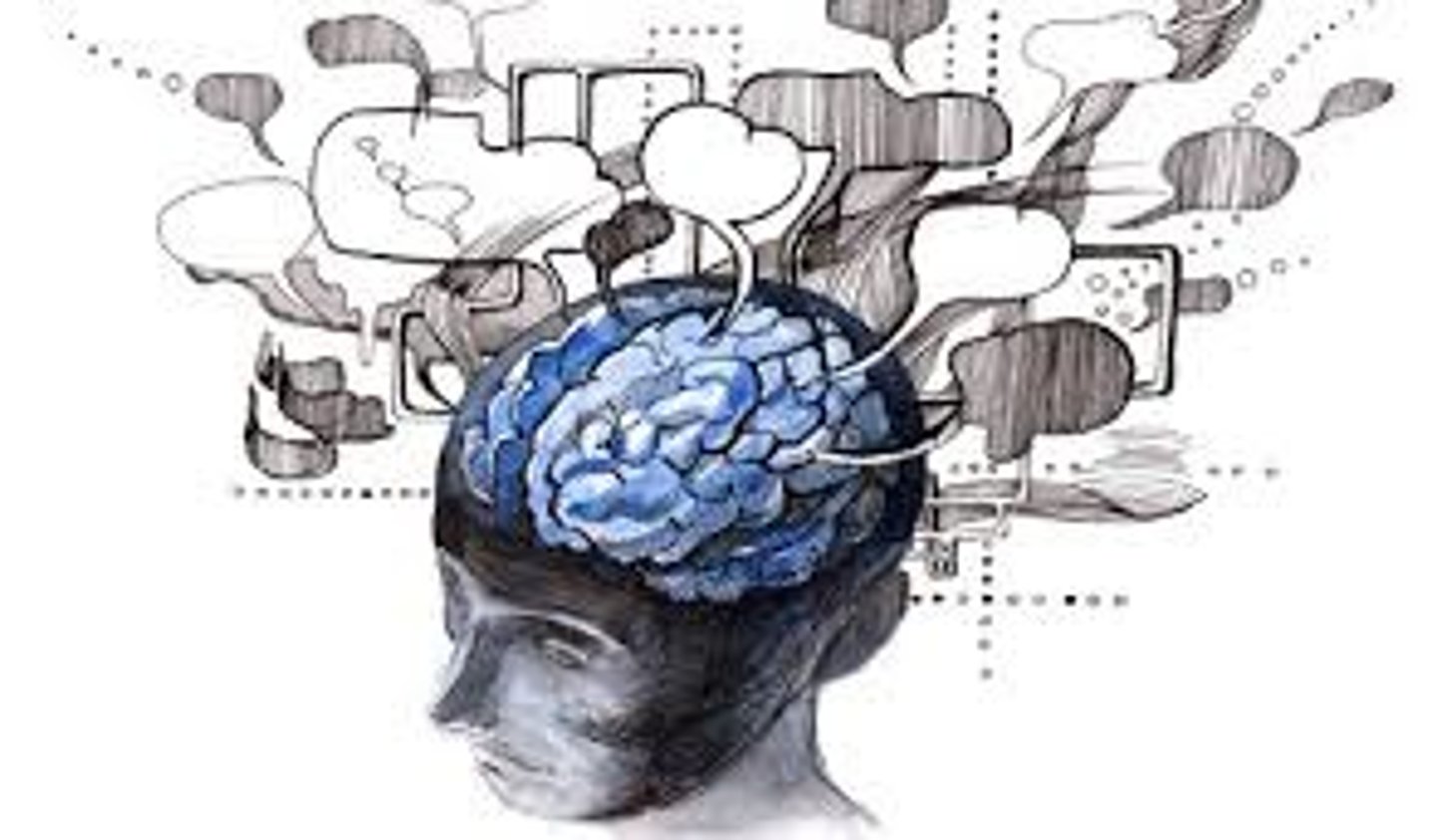
Circadian rhythm
the biological clock; regular bodily rhythms that occur on a 24-hour cycle
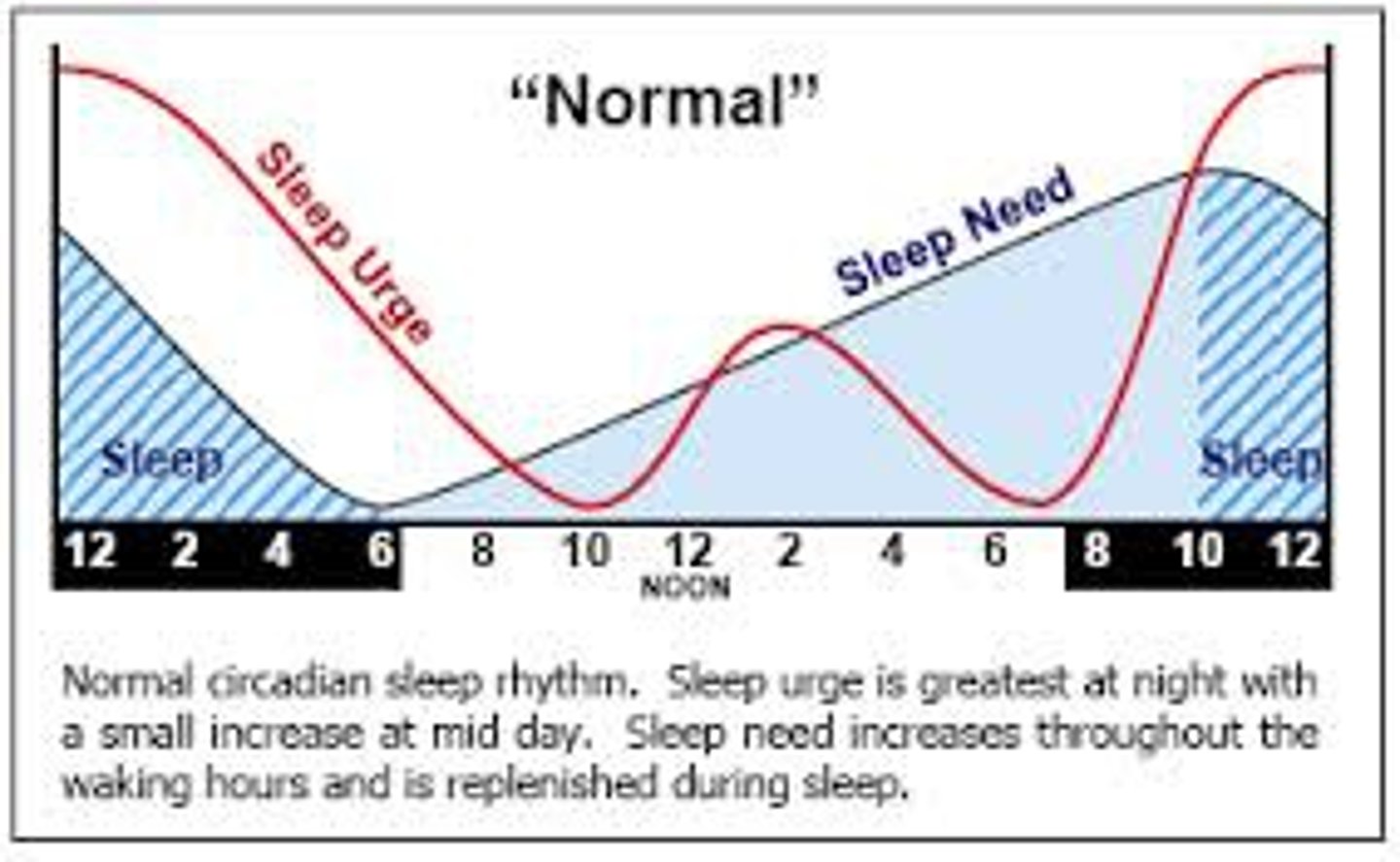
Jet lag
a disruption of circadian rhythms due to crossing time zones
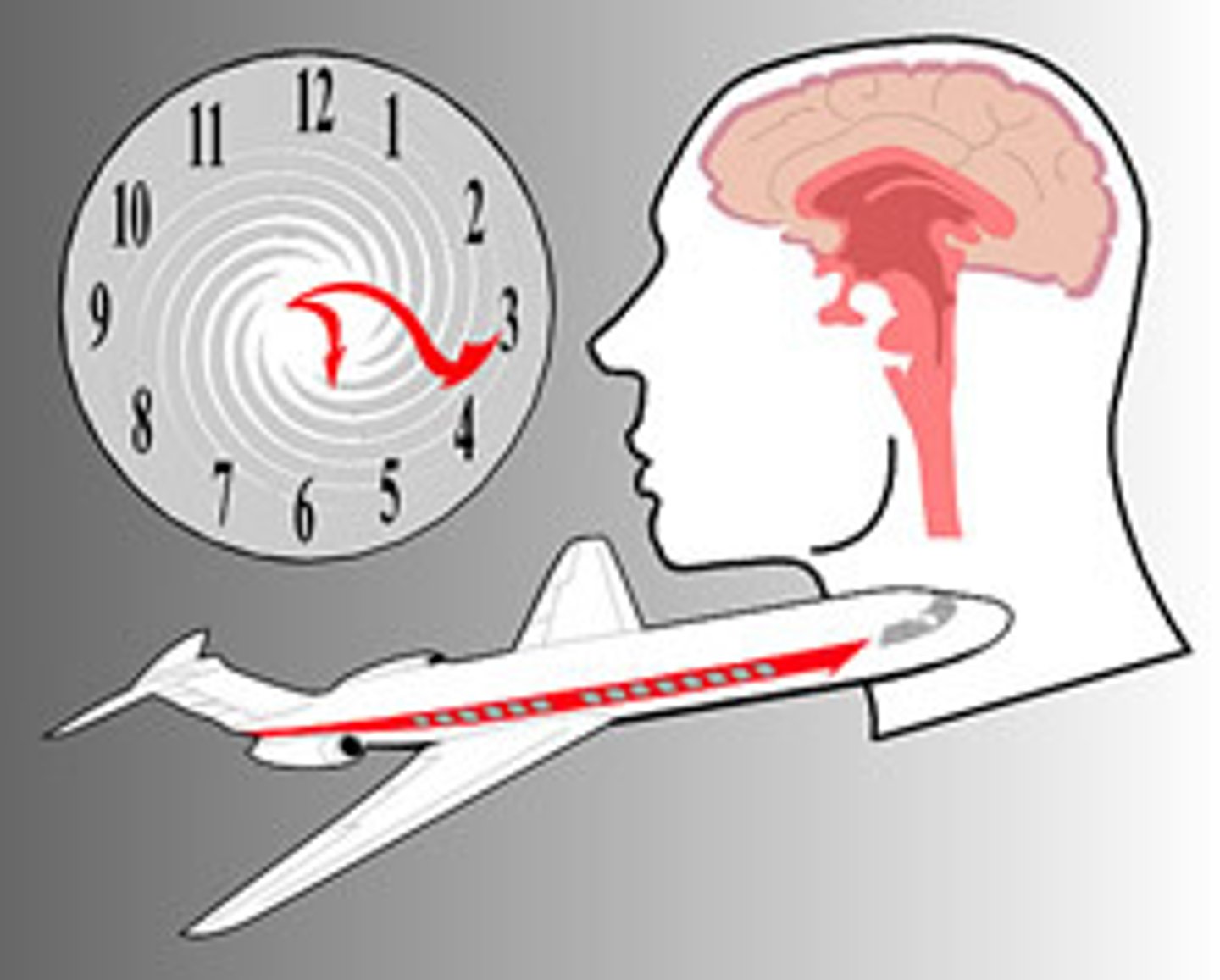
Shift work
a pattern of work in which a person sometimes works during the day and sometimes during the night
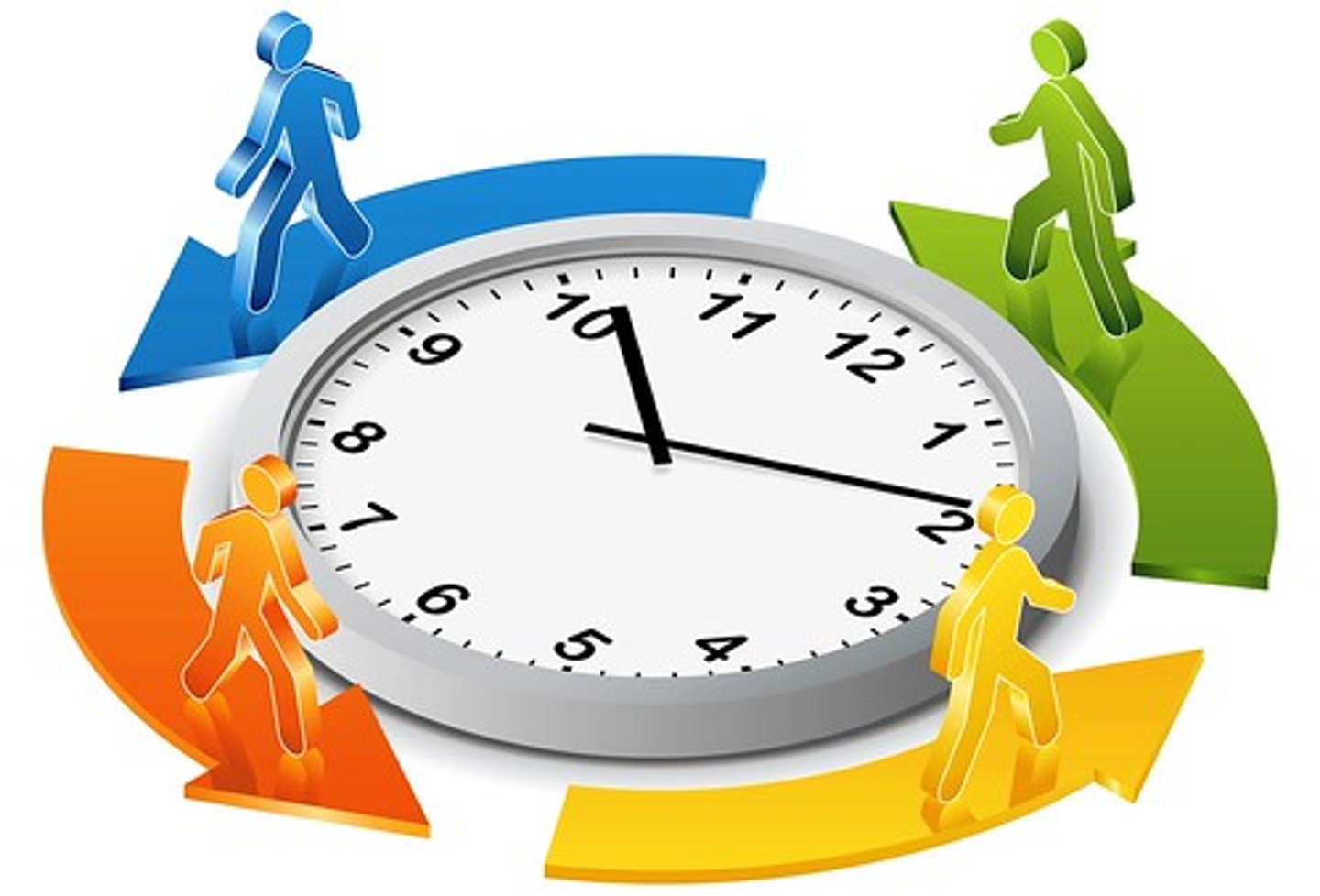
REM sleep
characterized by rapid eye movements and a high level of brain activity; accounts for about 25% of a person's total sleep
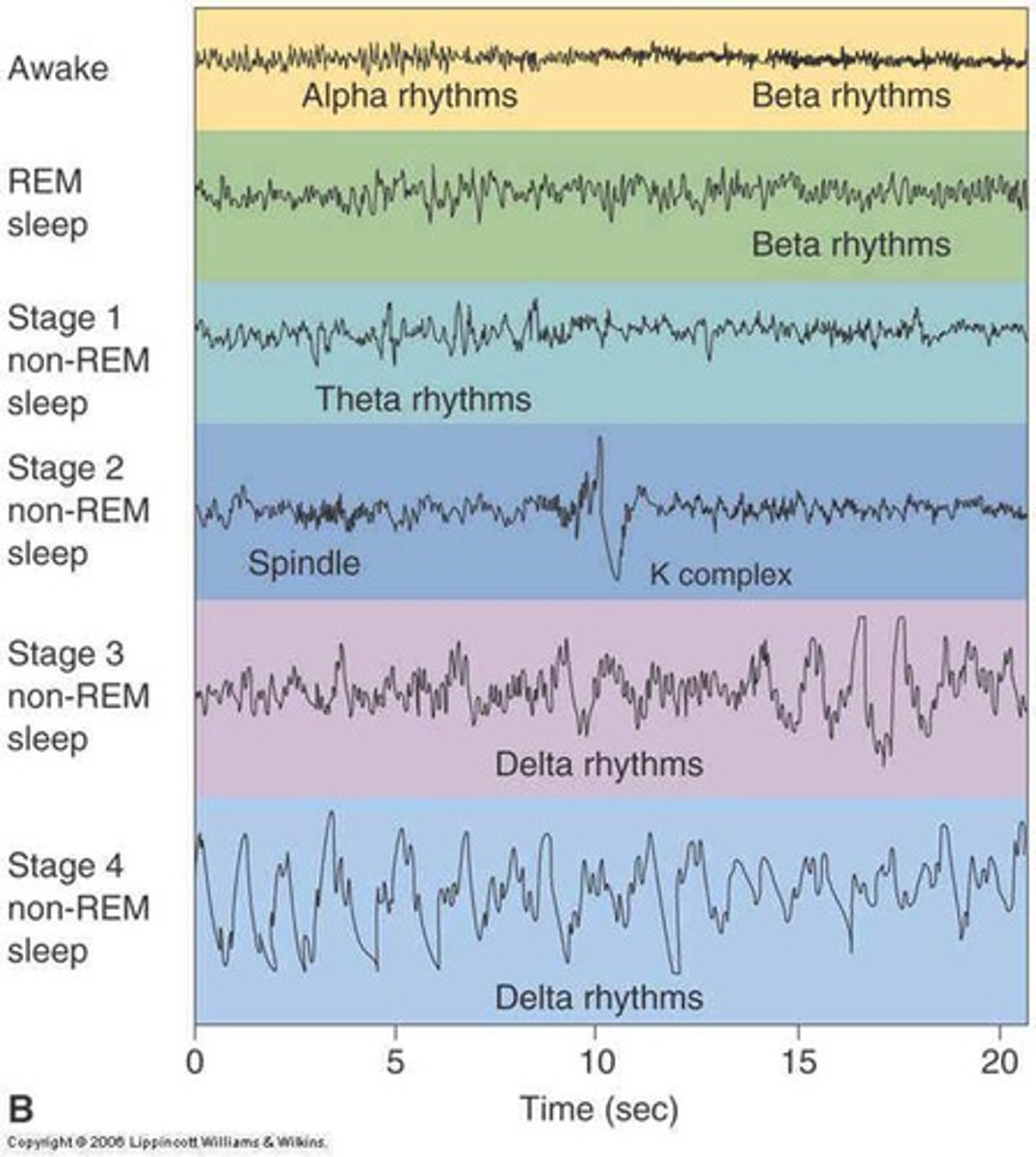
REM rebound
the tendency for REM sleep to increase following REM sleep deprivation (created by repeated awakenings during REM sleep)
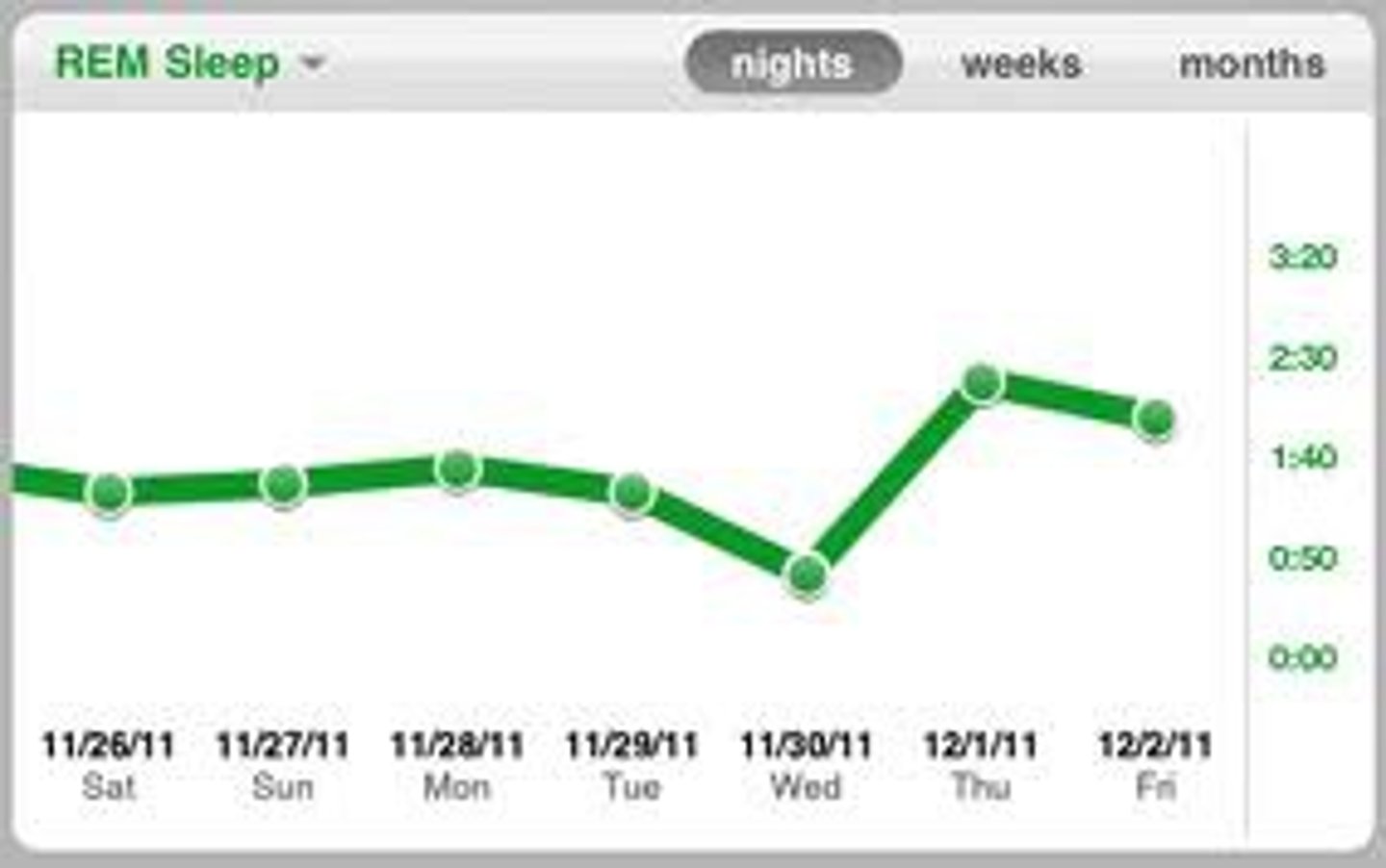
NREM stage 1
a transition period between wakefulness and sleep ("nodding off") characterized by relaxation and easy arousal
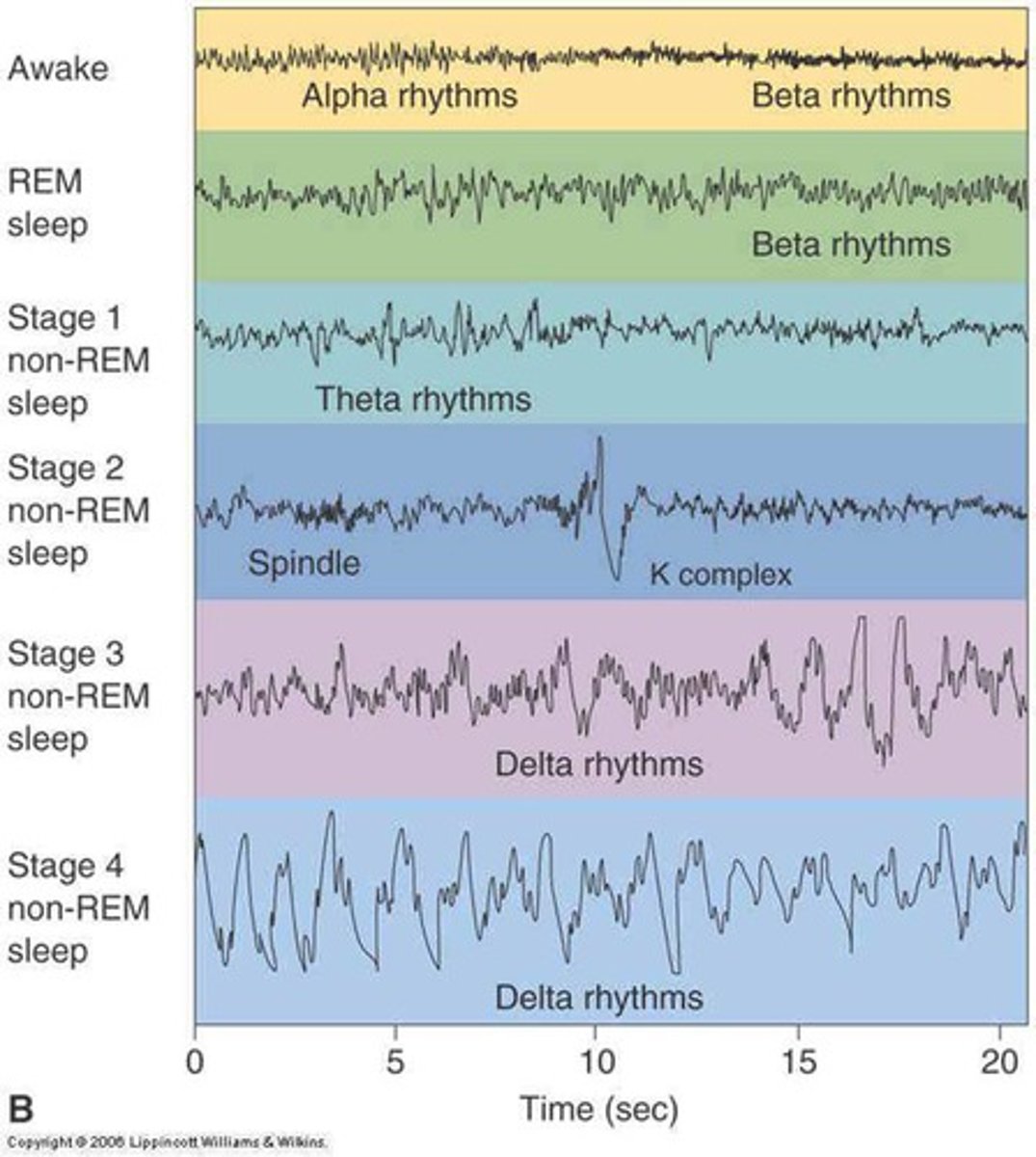
NREM stage 2
characterized by continued slowing of heartbeat, breathing, muscle activity, and eye movements; accounts for about half of a person's total sleep
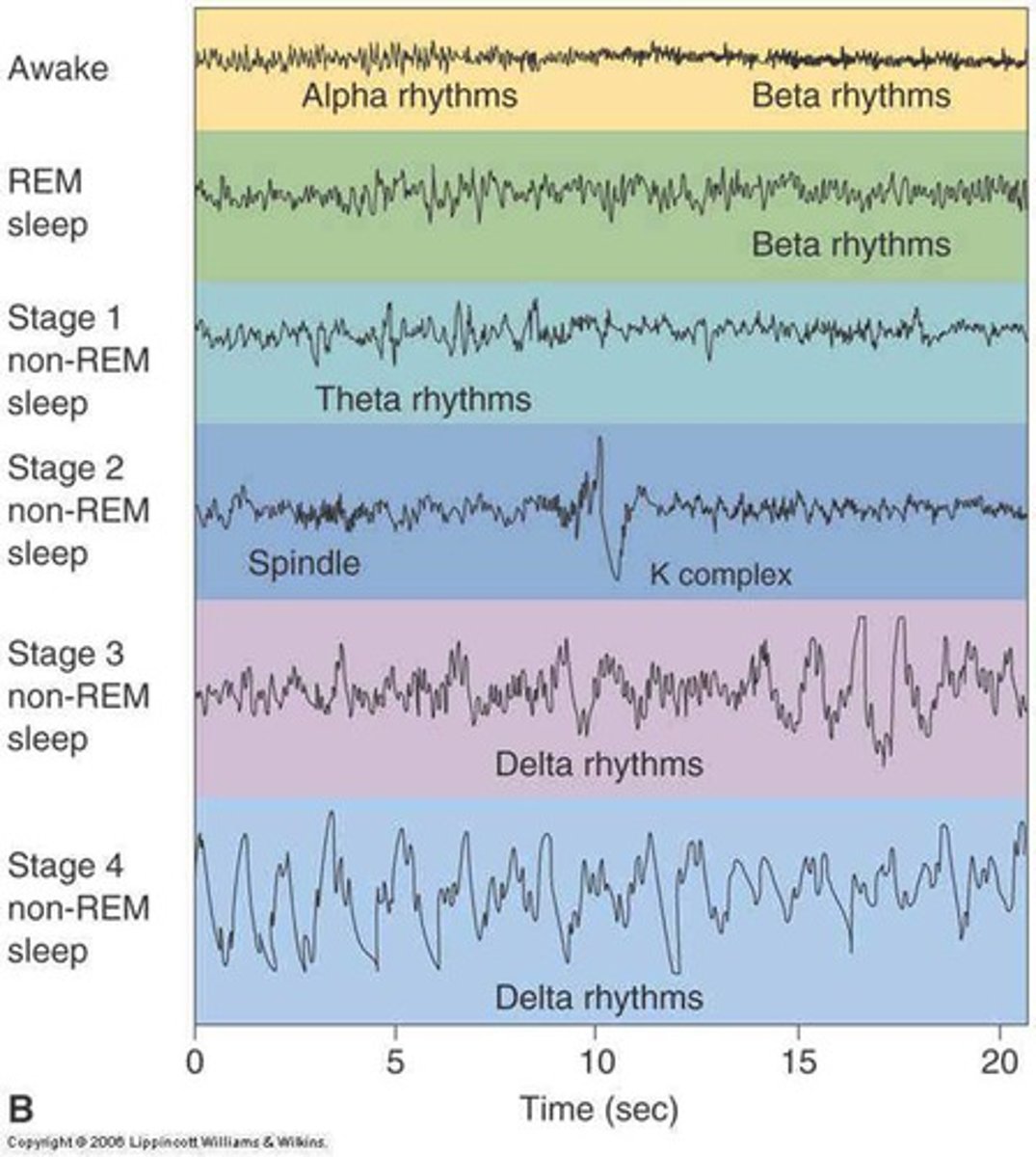
NREM stage 3
characterized by muscle relaxation, lowered blood pressure, and slower breathing; deepest sleep occurs in this stage
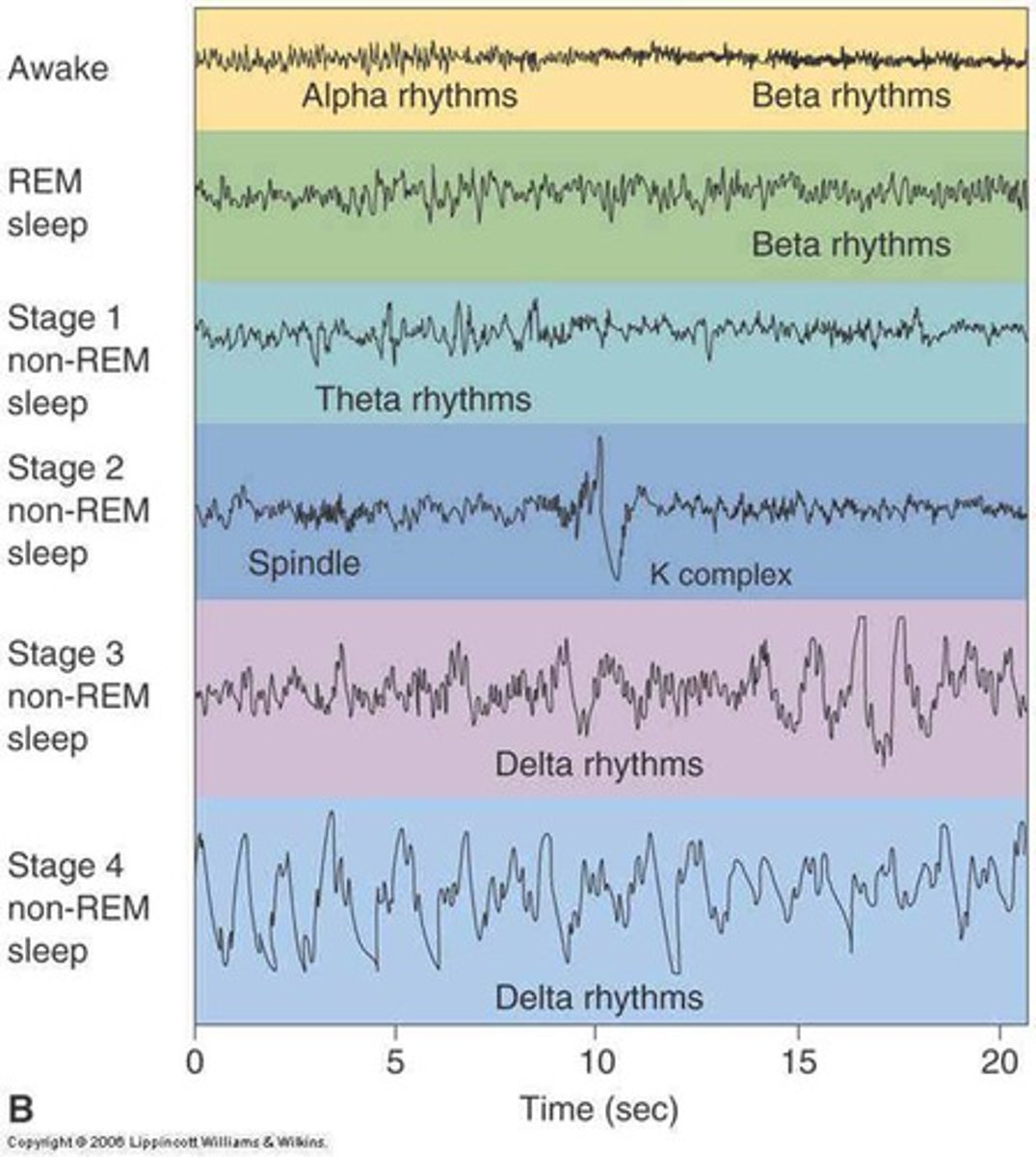
Hypnagogic sensations
imaginary images or sensations (e.g., falling or floating) that seem real and occur as a person is falling asleep
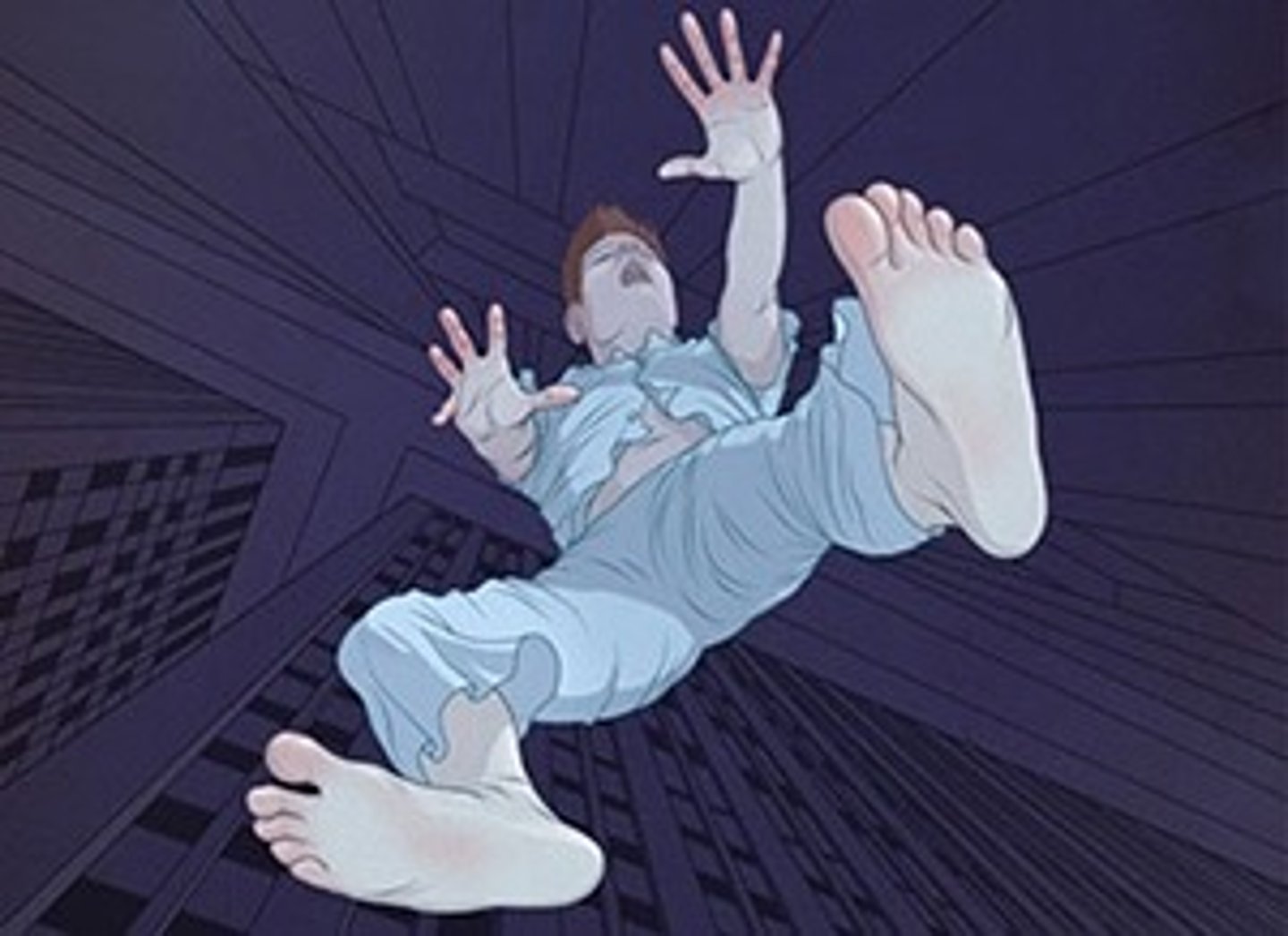
Activation-synthesis (dreams)
the theory that dreams are the result of the cerebral cortex interpreting and organizing random flashes of brain activity, originating in the lower brain structures, especially the pons
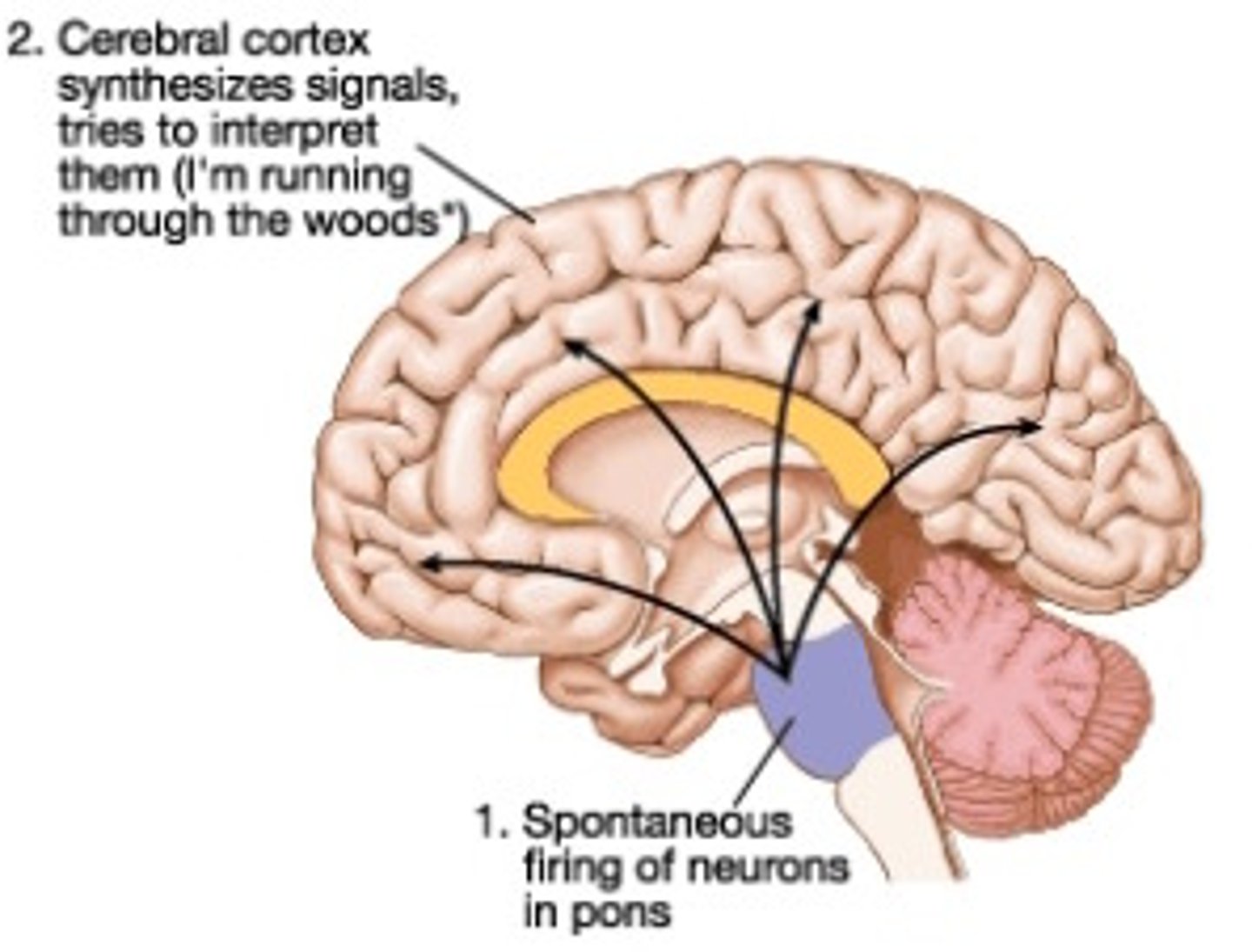
Consolidation theory (dreams)
the theory that during sleep, the brain is best able to integrate newly encoded memory into long-term store and that dreaming is influenced by this process
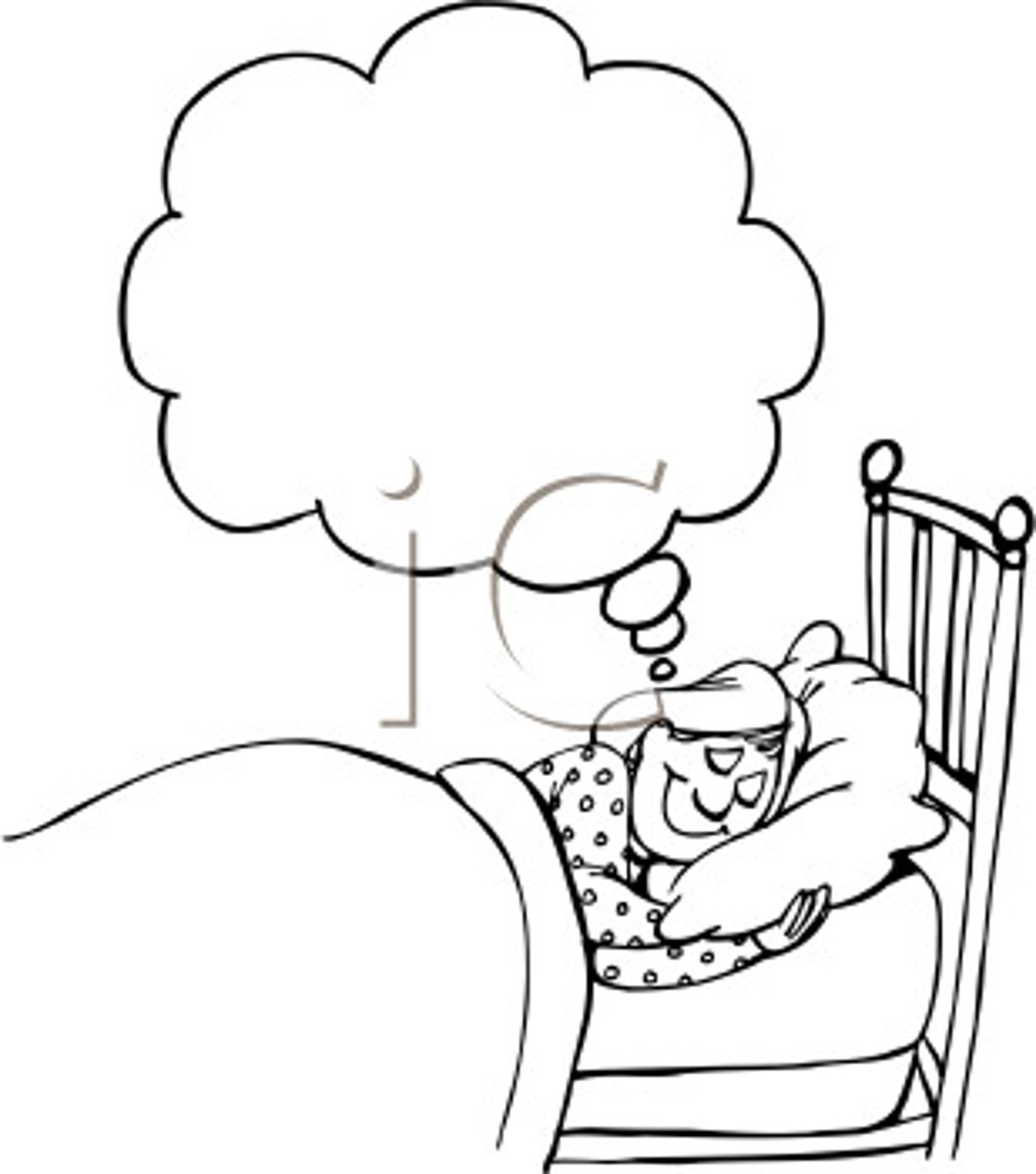
Restoration of resources
the theory that people need rest to recover energy lost throughout the day in order to be productive and healthy
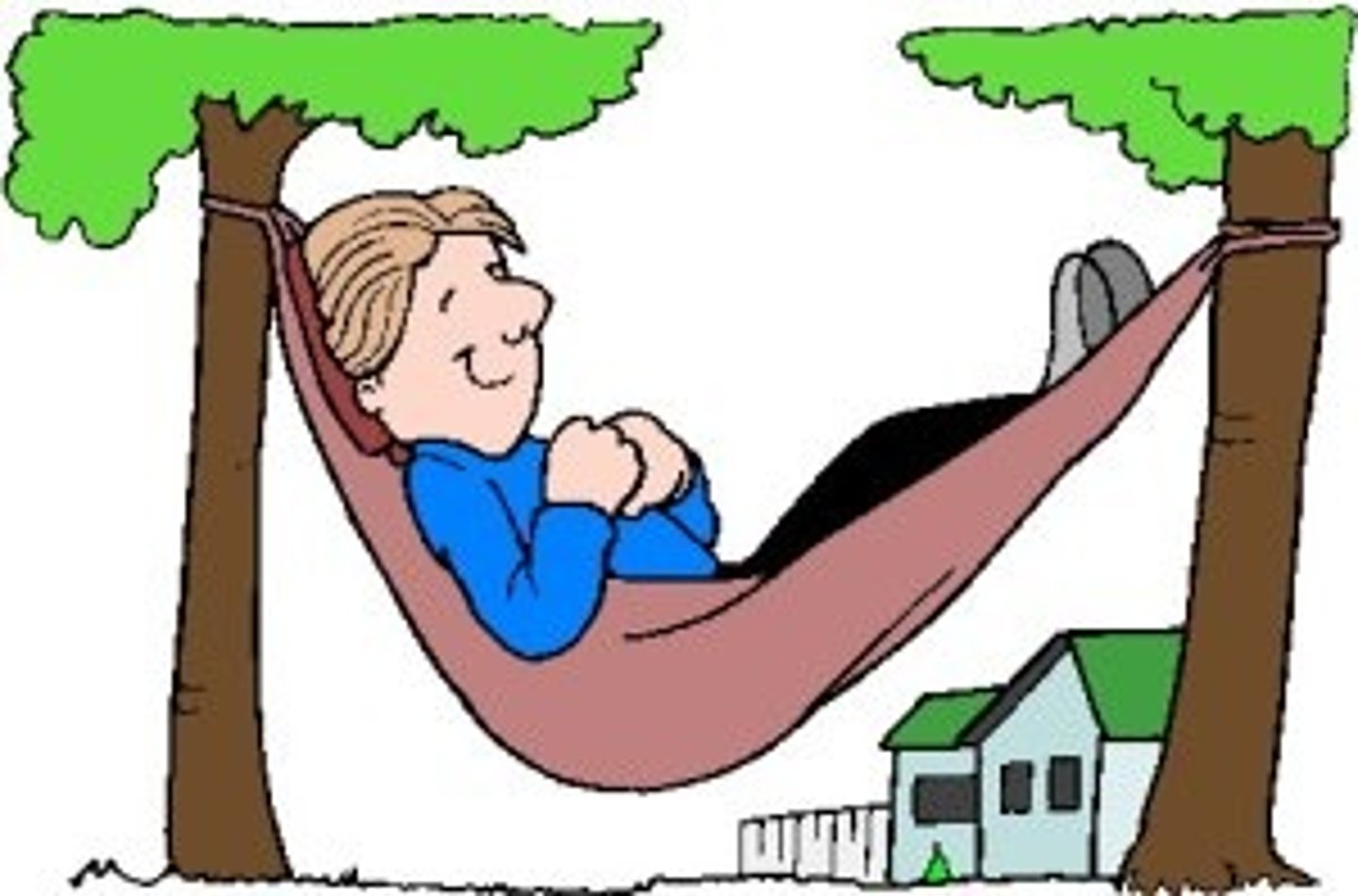
Insomnia
recurring problems in falling or staying asleep. (Myers Psychology for AP 2e p. 238)
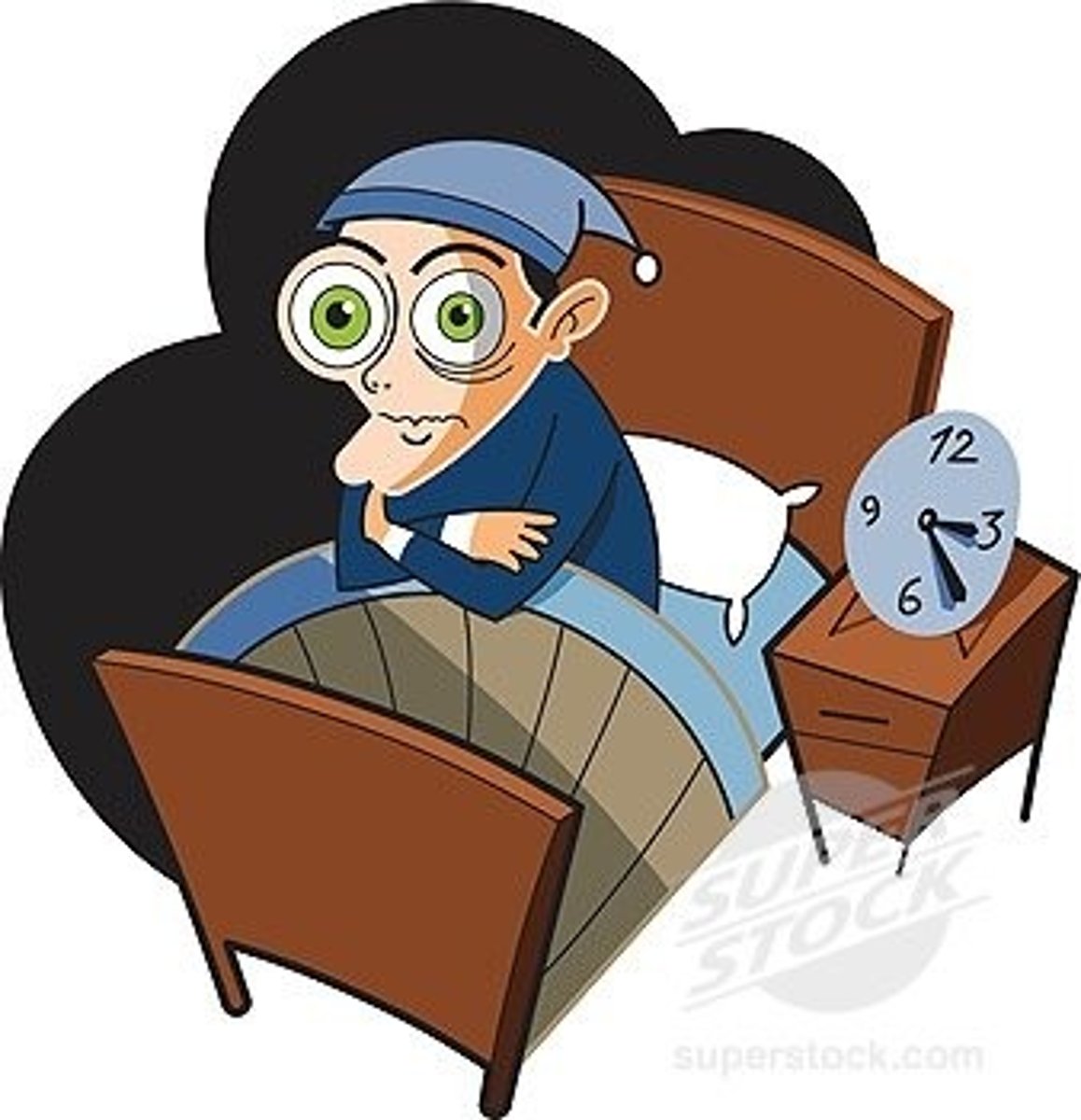
Narcolepsy
a sleep disorder characterized by unmanageable drowsiness and/or uncontrollably falling into REM sleep during the day

REM sleep behavior disorder
a disorder in which a person physically acts out vivid, often unpleasant dreams with vocal sounds and sudden, often violent, arm and leg movements during REM sleep
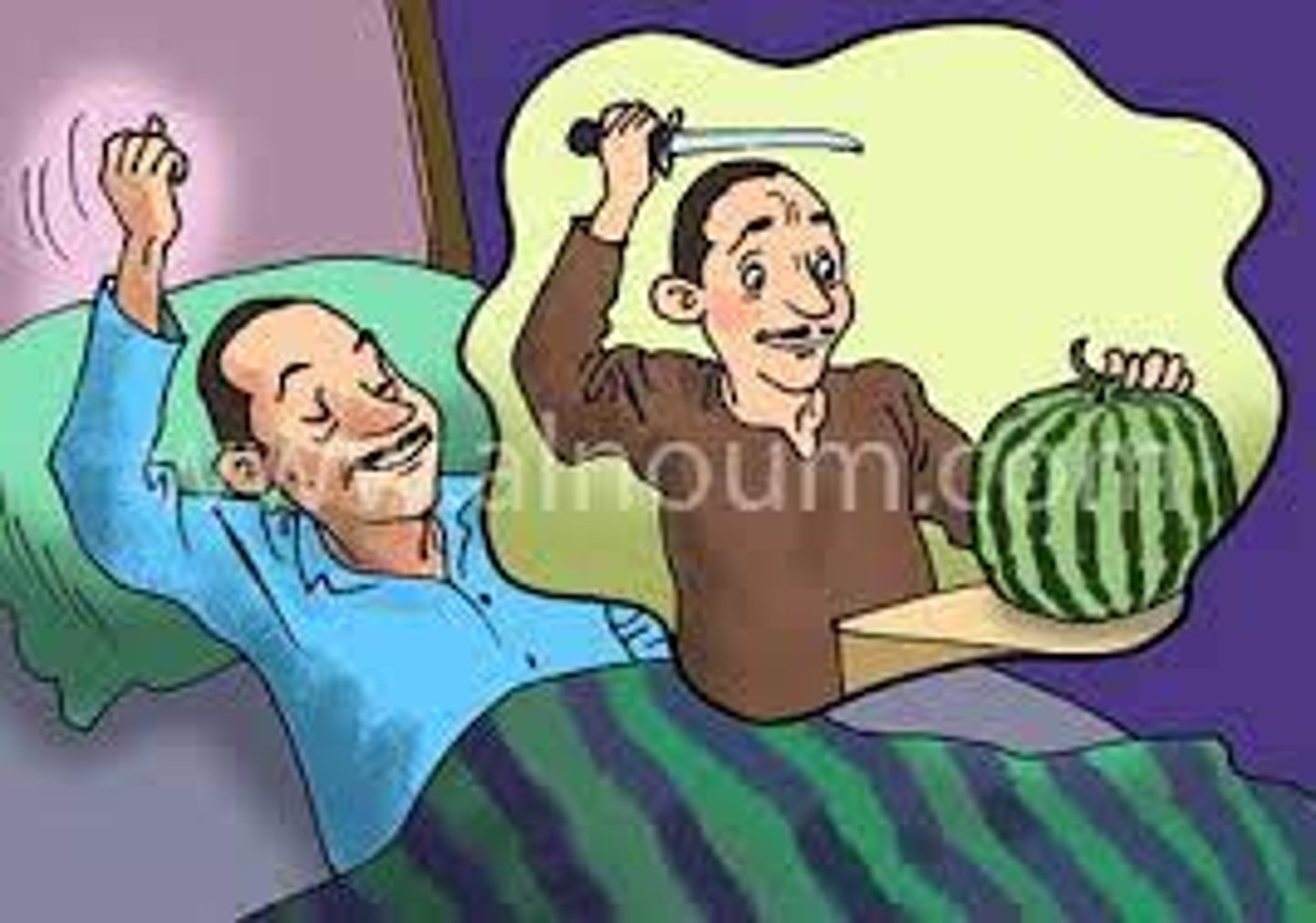
Sleep apnea
a disorder in which a person stops breathing for brief periods while asleep
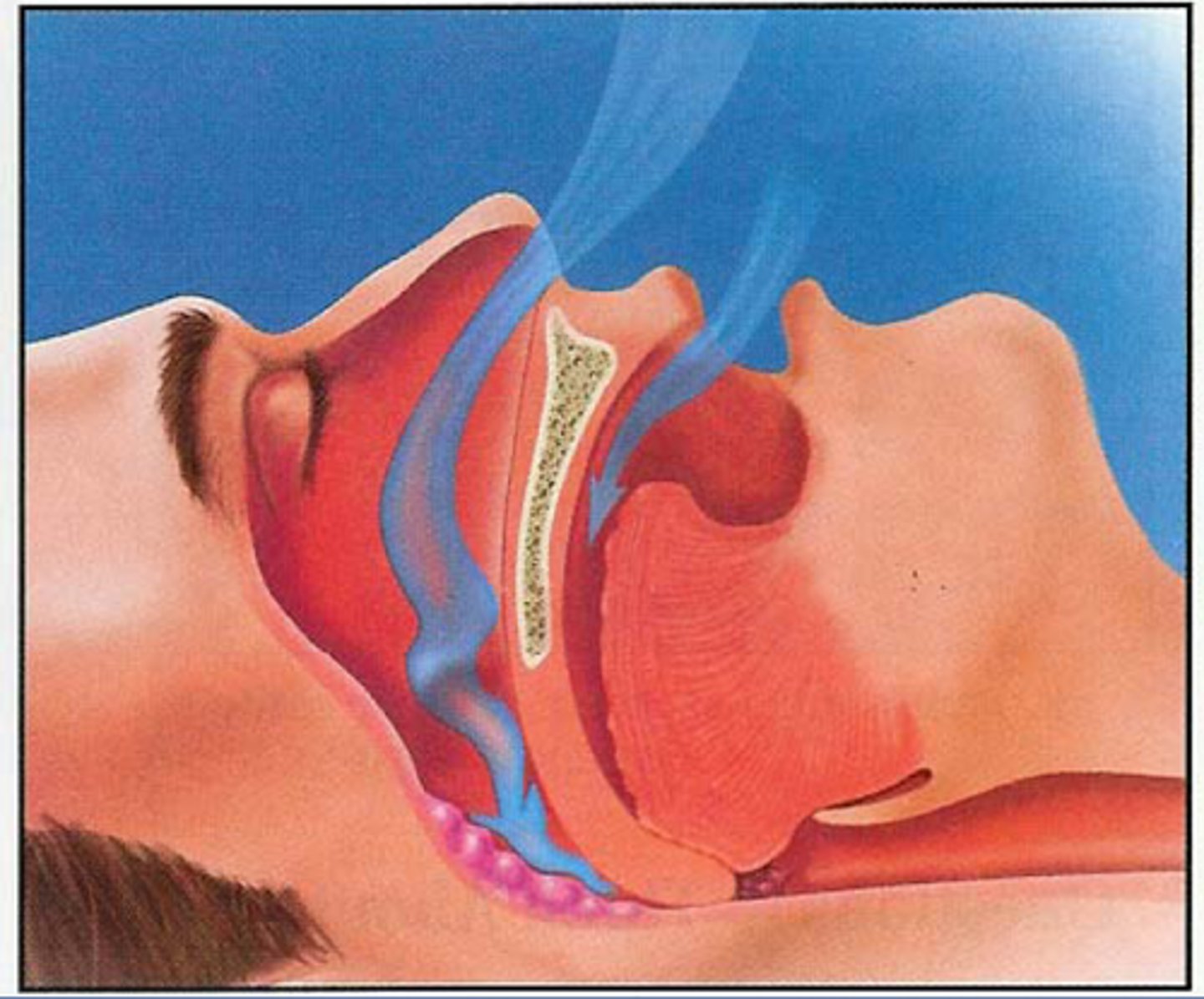
Somnambulism
the condition of walking or performing some other activity without awakening; also known as sleepwalking
